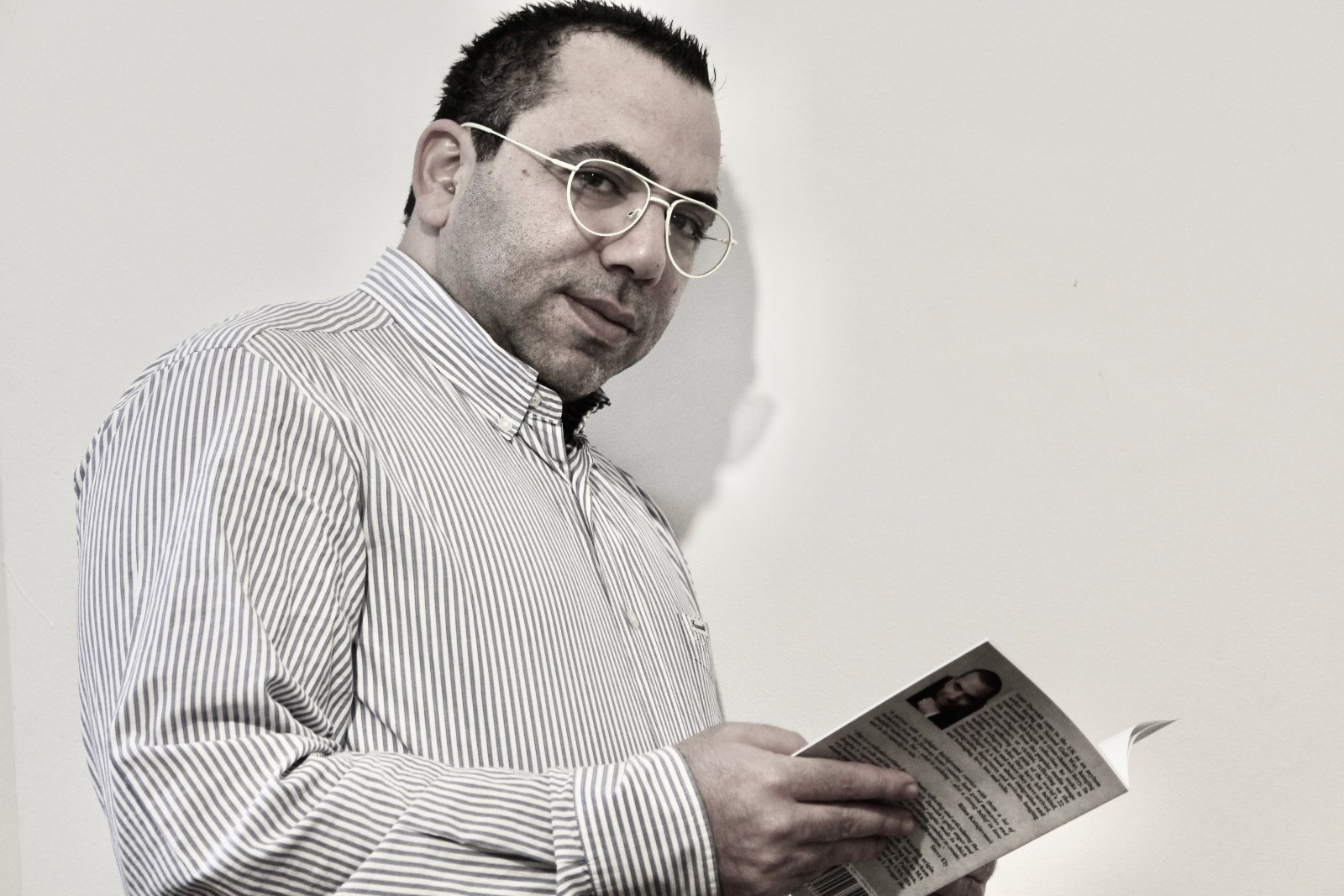Poetry and politics are shaping the future of PhD student Amir
Date 18.12.2024
18.12.2024
Harnessing the power of poetry to help migrants share their thoughts and feelings is one of the person mission statements for a University of Northampton (UON) PhD student.
Today is the United Nations’ annual International Migrants Day, and Amir Darwish – who has lived and worked in the UK since 2003 – has a deeply personal story about how creative writing can support people who are migrants.
Amir says: “I come from Syria and first and foremost, I am a writer and a poet. Since I was a teenager, my life has revolved around books and writing, which is what got me into trouble in the first place.
“A poem of mine about Kurdistan was picked up by the security services. They came to my family’s home and took me away to prison, where they used forms of torture on me.
“I was released, but ‘my card was marked’, so I had to leave my home and headed to Dubai then the UK, where I applied for asylum. After working as an interpreter in the North East, I started my academic career and was bitten by the ‘study bug’ quite soon and have progressed up the academic ladder thanks to being here in UK.”
Amir’s PhD will conclude next year: “I’m examining the Muslim Brotherhood in Egypt, particularly the founder, Hassan al Banna, and comparing this to fascist characteristics.
“Doing this through University of Northampton has been an exciting journey. The most beautiful thing about this is that, through conversations with my supervisor Professor Paul Jackson, I changed my position on the entire research. I started from the position that the Brotherhood was a ‘photocopy’ of fascism and, from the outside, it does look like that. When you dig deeper, there are differences.”
Amir is also a member of the University’s Centre for the Advancement of Racial Equality (CARE) – founded in 2022 by Professor Jackson and colleagues across the University – and has continued his writing poetry. His work focuses on home, belonging, exile an identity, themes that recur in the work of other migrant writers who feature in another of Amir’s interests.
For the past two years he has been co-editor of The Other Side of Hope, a migrant-led publication, with poetry and other writing in English and other languages.
Amir says: “The Other Side of Hope is a platform for me and other writers from around the world who are asylum seekers, immigrants and refugees to express ourselves and voice our journeys.
“We recently held a launch event for the publication’s latest edition at Waterside campus, which was the right place to do this. The people who attended were from all walks of life, including students from abroad and UK students of different ethnicities. It was a great way of introducing the audience to this kind of literature. I’m grateful that, ahead of International Migrants Day, the University gave us the platform to do this.”